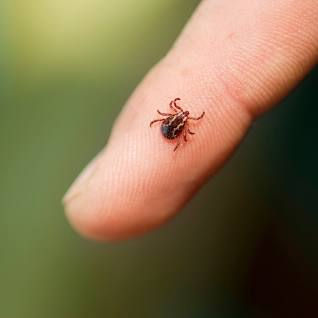Dangers of Ticks!
- skeetabeatasteve
- Feb 5, 2023
- 2 min read

Ticks are tiny insects that can be found in many areas, particularly in wooded and grassy regions. They are known carriers of many diseases, which can pose a significant health risk to humans and animals alike.
One of the most well-known diseases transmitted by ticks is Lyme disease, which is caused by the bacterium Borrelia burgdorferi. Lyme disease is commonly characterized by a bull's-eye rash, fever, headache, fatigue, and joint and muscle pain. If left untreated, it can lead to more serious health issues, such as neurological problems and joint inflammation.
Another disease that can be spread by ticks is Rocky Mountain spotted fever. This bacterial illness is often accompanied by symptoms such as fever, headache, muscle pain, and a rash. The disease can be fatal if not treated in time.
Ticks can also transmit diseases like tularemia, ehrlichiosis, and babesiosis. These diseases can cause severe symptoms like fever, fatigue, headache, muscle pain, and anemia. Some tick-borne diseases can also be transmitted to pets, which can then spread the disease to their owners.
To prevent tick bites, it is recommended to wear protective clothing when walking in areas where ticks are commonly found. Light-colored clothing makes it easier to spot ticks, and wearing long pants and sleeves can help to keep them off your skin. You can also use insect repellent sprays and tick-repelling products on your clothes and skin.
It is also important to check for ticks after being outdoors, especially in tick-infested areas. Ticks can attach themselves to your skin and feed on your blood, so removing them as soon as possible is key to preventing disease transmission.
In conclusion, ticks can pose a significant health risk to humans and animals, and it is important to be aware of the dangers of tick bites and take appropriate measures to protect yourself and your family. If you suspect that you have been bitten by a tick, seek medical attention promptly.




Comments